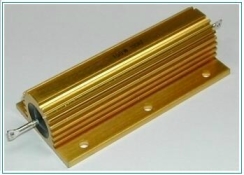I currently work in a foundry setting where we operate with two manned overhead cranes. On occasion metal dust from out very dirty foundry will build up on the external resistors that we have for the VFD's installed on the cranes and basically short circuit. This has caused a drive failure on multiple occasions. Is there a way to protect the drive in a situation such as this? Could it be as simple as installing short circuit protection in line between the resistor bank and the VFD?
You are using an out of date browser. It may not display this or other websites correctly.
You should upgrade or use an alternative browser.
You should upgrade or use an alternative browser.
Shorted Dynamic Braking Resistor
- Thread starter bigwood1
- Start date
- Status
- Not open for further replies.
4-20mA
an analog man in a digital world
- Location
- Charleston SC
- Occupation
- Process Control, Instrumentation & Electrical
Can you mitigate the dust accumulation instead? Maybe a shroud? Maybe canned air duster? What will short circuit protection give you if the actual issue will continue to occur?
any chance of enclosing the resistor................
Braking Resistor Box
Braking Resistor Box for testing equipment, elevator and crane.
jdcresistors.com
synchro
Senior Member
- Location
- Chicago, IL
- Occupation
- EE
The company at the link below makes dynamic braking resistors with an IP66 dust and liquid ingress rating. Perhaps you could contact them whether they, or some firm that they work with, could provide a solution for your application.
synchro
Senior Member
- Location
- Chicago, IL
- Occupation
- EE
Could some metal dust also be getting into the VFD itself even if it's in an enclosure? The electronics inside a VFD would be much more vulnerable to conductive dust than would a braking resistor, due to the higher impedance levels involved.
zbang
Senior Member
- Location
- Roughly 5346 miles from Earls Court
That's the best path- stop the problem from happening.Can you mitigate the dust accumulation instead?
- Location
- San Francisco Bay Area, CA, USA
- Occupation
- Electrical Engineer
What happens is that when you short the DB resistor circuit, it is a direct short on the braking transistor and it will destroy it. You can TRY to use a super fast acting semiconductor fuse on the DB circuit, but my personal experience is that they just add to the expensive stuff that needs to be replaced, because they never act fast enough to actually save the transistor.
So yeah, mitigate the dust issue.
So yeah, mitigate the dust issue.
drcampbell
Senior Member
- Location
- The Motor City, Michigan USA
- Occupation
- Registered Professional Engineer
Two possibilities come to mind:
Build a sealed aluminum box with finned heat sinks on the outside and aluminum-housed resistors on the inside.

Build a semi-sealed, positive-pressure resistor box cooled by filtered shop air.
One of the problems with power semiconductors is that they're super fast.
Even if you can find semiconductor fuses that clear fast enough, you would only be preventing equipment damage, not preventing downtime.
Build a sealed aluminum box with finned heat sinks on the outside and aluminum-housed resistors on the inside.

Build a semi-sealed, positive-pressure resistor box cooled by filtered shop air.
One of the nice things about power semiconductors is that they're super fast.... You can TRY to use a super fast acting semiconductor fuse on the DB circuit, but ... they never act fast enough to actually save the transistor. ...
One of the problems with power semiconductors is that they're super fast.
Even if you can find semiconductor fuses that clear fast enough, you would only be preventing equipment damage, not preventing downtime.
gadfly56
Senior Member
- Location
- New Jersey
- Occupation
- Professional Engineer, Fire & Life Safety
^^^^This right here.Two possibilities come to mind:
Build a sealed aluminum box with finned heat sinks on the outside and aluminum-housed resistors on the inside.

Build a semi-sealed, positive-pressure resistor box cooled by filtered shop air.
One of the nice things about power semiconductors is that they're super fast.
One of the problems with power semiconductors is that they're super fast.
Even if you can find semiconductor fuses that clear fast enough, you would only be preventing equipment damage, not preventing downtime.
I think that eliminating the cause is best but there may be other options.
I wonder if there is a way to monitor the current flow through the brake resistor and alarm or disable the VFD when the limits are exceeded. Do VFDs have any alarm points that can be set to monitor this? I haven't installed or programmed one in 20 years or more.
I would imagine the resistance lowers overtime with the build up of dust? Maybe make it a maintenance routine to blow out the resistor box and check the resistance? could do weekly or monthly? This way you could catch it before it goes too far out of tolerance and causes a failure.
I wonder if there is a way to monitor the current flow through the brake resistor and alarm or disable the VFD when the limits are exceeded. Do VFDs have any alarm points that can be set to monitor this? I haven't installed or programmed one in 20 years or more.
I would imagine the resistance lowers overtime with the build up of dust? Maybe make it a maintenance routine to blow out the resistor box and check the resistance? could do weekly or monthly? This way you could catch it before it goes too far out of tolerance and causes a failure.
- Status
- Not open for further replies.

